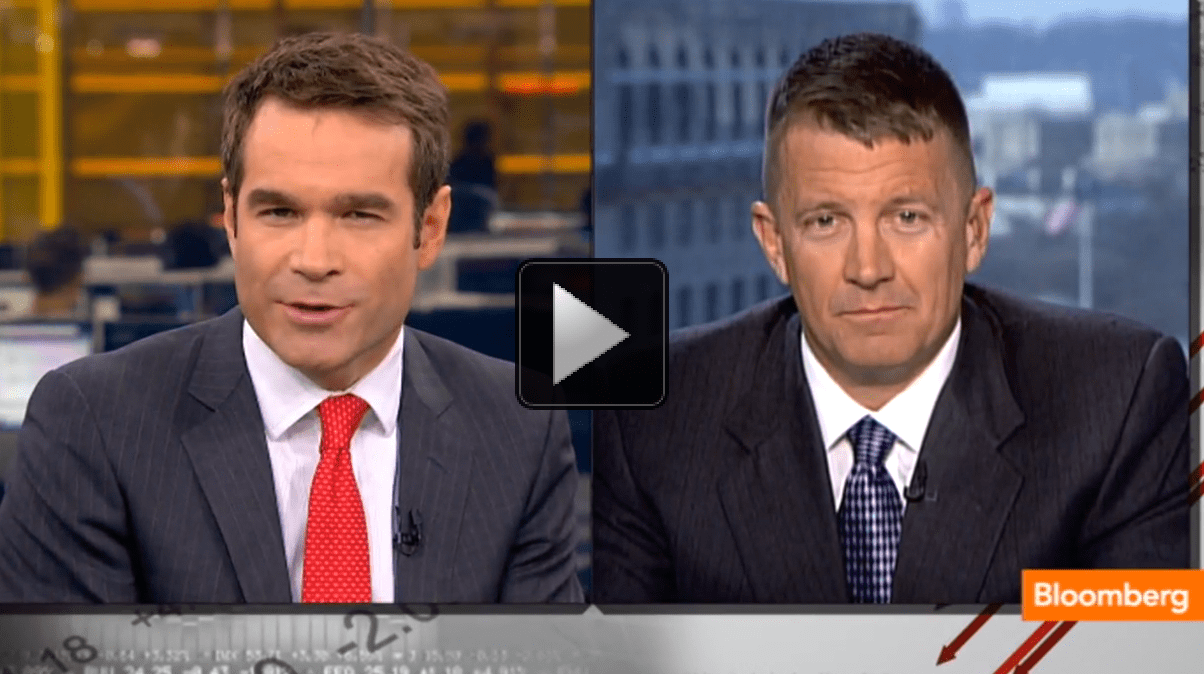Dear Readers,
One of the world’s largest money mangers, Mohamed El Erian, just quit, while three bankers apparently committed suicide this week.
One former Deutsche Bank executive, William ‘Bill’ Broeksmit, was found dead after police received reports of a man found hanging at a London house.
Later that day, JP Morgan tech executive Gabriel Magee fell to his death from the bank’s London headquarters. Those close to who him where shocked, citing there was absolutely no indication that there might be anything in his private or professional life that would’ve cause him to take his life.
A few days after the deaths of the two London finance workers, former Fed member and chief economist at Russell Investments, Mike Dueker, was also found dead after falling from a 50-foot embankment. Pierce County Detective Ed Troyer said the death appeared to be a suicide.
Last week, a U.K.-based communications director at Swiss Re AG – the world’s second-largest reinsurer with focus on risk transfer, risk retention financing, and asset management, died. The cause of death has not been made public.
![]()
Investment Diary Performance
Subscribers of my premium service, www.investmentdiary.com have destroyed the markets over the past few months.
Here’s a look at some of the ideas and their performances*:
- From October 21, 2013: Tech idea Up 727%
- From November 6, 2013: Tech idea Up 92%
- From November 21, 2013: Energy idea up 85%
- From January 2, 2014: Gold idea up 17%
- From January 16, 2014: Healthcare idea up 120%
- From January 22, 2014: Gold idea up 25%
*share prices and gains calculated from the time of post to share prices after market close on Janaury 31, 2014.
Tonight I am giving ALL subscribers of Investment Diary my latest healthcare idea. I already own more than $100,000 of this stock, but sign up to Investment Diary now and find out why I am still trying to buy more.
![]()
Back to the Conspiracy
Many are speculating that something serious is brewing in the global financial market; that the men who died knew that something extremely bad is about to happen. Others have stated that the bankers who died could’ve been murdered.
Since we can only speculate (for now), its better for us to look at the facts.
I don’t know what really happened to these men. But I do know that all of these men had one thing in common: They were all responsible for risk management.
William ‘Bill’ Broeksmit
Broeksmit was a seasoned banker who was a pioneer in interest rate swaps, and a specialist in capital management and risk.
According to Bloomberg:
“Broeksmit had been recruited to Merrill several years earlier by Edson Mitchell, a former head of fixed income who also moved to Deutsche Bank and was a mentor of Jain as well.
Broeksmit and Mitchell, in a 1993 memo, warned Merrill management of “potential adverse consequences” for Orange County, California, a client, “in the event of a substantial increase in interest rates and the flight of hot money” from the county’s investment pool, the New York Times reported in 1998. Their warning proved on the mark.
Orange County, the nation’s fifth most-populous county, sought protection from creditors in 1994 after losing about $1.7 billion on derivative investments. That was at the time the nation’s biggest municipal bankruptcy.”
Mike Dueker
Dueker worked at Seattle-based Russell for five years, and developed a business-cycle index that forecast economic performance. He was previously an assistant vice president and research economist at the Federal Reserve Bank of St. Louis.
According to Businessweek:
“He published dozens of research papers over the past two decades, many on monetary policy, according to the St. Louis Fed’s website, which ranks him among the top 5 percent of economists by number of works published. His most-cited work was a 1997 paper titled “Strengthening the case for the yield curve as a predictor of U.S. recessions,” published by the reserve bank while he was a researcher there.
Dueker worked at the reserve bank from 1991 to 2008, starting as an entry level research economist, then advancing to senior economist, research officer, and assistant vice president, according to Laura Girresch, a spokeswoman.
He helped the bank’s president prepare for Federal Open Market Committee policy meetings and wrote and edited for economic publications, she said. Dueker served as editor of the reserve bank’s research publication, Monetary Trends, and also was an associate editor of the Journal of Business and Economic Statistics, Girresch said.”
The county sheriff told us he was having trouble at work.
Trouble with Index Funds?
What the articles failed to mention was that at the beginning of the year, a sale of Russell Investments was being explored by its owner, Northwestern Mutual Life Insurance.
Russell Management owns and operates the Russell Indexes, which represent the investable global equity market and its segments. It consists of more than 10,000 securities in 63 countries, including Canada, and offers hundreds of sub-indexes. The index funds are constructed using float-adjusted market capitalization weights.
Given the growing popularity of index-based funds and exchange-traded funds, firms like Barclays (who may also be exploring the sale of its index funds) and Russell could obtain a good premium for selling their index businesses now.
However, what happens if the market crashes? Remember, index funds (including the Russell Index funds) are simply funds that maintain the appropriate weightings to match index performance.
For example, the Russell 3000 is comprised of the top 3000 American stocks by market cap. Every year the index is rebalanced. The managers behind the index have to buy or sell the appropriate amount of shares in each of the 3000 stocks to maintain the correct weighting for its index fund.
(Many traders often take advantage of this rebalancing act, including myself. To learn more, our premium service Investment Diary has a great idea on how to play this rebalancing act.)
Back in 2008, Russell Investments shut down its hedge fund of funds operation. Its money market funds had more than 5 percent exposure to securities of Lehman Brothers Holdings Inc., which went under in 2008 – losing hundreds of billions of dollars.
Here’s something to think about: if the conspiracy theorists are right and Mike Dueker knew something terrible was going to happen in the market, then his firm, Russell Investments, could be in big trouble. Maybe that’s why its owner has been exploring its sale.
What would happen to these funds if other banks – or stocks – collapse, as they did in 2008? Remember the bank run of Lehman Brothers and Bear Stearns?
Imagine what would happen if a number of banks all of a sudden failed…Did Dueker, or any of the other finance workers who passed away this week, know something?
Something to think about…
What do you think? CLICK HERE to share your thoughts.
Worldwide Capital Control
Last Friday, HSBC imposed restrictions on large cash withdrawals under a new policy that apparently was not be publicized to its clients.
“Some HSBC customers have been prevented from withdrawing large amounts of cash because they could not provide evidence of why they wanted it.
Listeners have told Radio 4’s Money Box they were stopped from withdrawing amounts ranging from £5,000 to £10,000.
HSBC admitted it has not informed customers of the change in policy, which was implemented in November. The bank says it has now changed its guidance to staff.”
Meanwhile, according to Bloomberg via Zerohedge, ‘My Bank’ – one of Russia’s top 200 lenders by assets – has introduced a complete ban on cash withdrawals until next week. In other words, if you have money there, you can’t take it out.
It has now come to light that the Russian Central Bank has now shut down the My Bank. It has also shut down Moscow-based lender, Priroda Bank.
“The regulator said it also revoked the licenses of two regional non-bank credit organizations, OOO RNKO Traditsiya and OAO NDKO MTSM.
My Bank, a top 200 lender by assets, had its license canceled because of “significant misreporting of data and inability to meet creditors’ obligations,” according to a central bank statement. Priroda Bank was cited for involvement in “suspicious transactions” and not providing sufficient reserves for possible loan losses, the central bank said in separate statement.
The central bank has accelerated its crackdown since Nov. 29 when it revoked the license of Master-Bank, Russia’s 41st largest lender by assets, for money-laundering violations. Mid-size lenders Project Financing Bank and Smolensky Bank were also shut on Dec. 13, and Investbank was closed after failing capital-adequacy reviews.
The central bank has revoked about 35 banking licenses since July 1 when Elvira Nabiullina succeeded Sergey Ignatiev as governor, compared with three in the first half of 2013. Nabiullina is striving to tighten regulation of banks and curtail net capital outflow that was forecast at about $55 billion last year.”
It’s clear that Russia’s central bank is going to great lengths to prevent capital flight.
It’s even punishing citizens who aren’t using their currency with threats of jail time.
On Monday, the Russian Central Bank issued a statement warning that virtual currencies, or “money surrogates” are illegal under Article 27 of the Federal Law “On the Central Bank of the Russian Federation”.
This is, of course, directed at Bitcoin users.
First China, now Russia. Whose next?
Time to Pay the Piper
Over the past years, I talked about how the world’s extravagant money printing and debt will eventually be passed on to our children, and our children’s children; likely in the form of taxation.
It turns out that Europe is already working on it.
Germany’s central bank, the Bundesbank, proposed on Monday a one-off wealth tax on their citizens.
“The German central bank raised the idea of an emergency capital levy in its monthly report, arguing that it corresponded with the principle of “national responsibility, according to which taxpayers are responsible for their government’s obligations, before the solidarity of other states is called upon”.
The Bundesbank said that the levy would have to be a one-off “imposed in conditions of extraordinary national crisis”, in order to limit negative consequences for investment, and potential capital outflows.”
In other words, Germany wants the citizens of Europe to leave their money in their nations’ banks, so that the government may use it to pay off debt.
All of this comes on the heels of Europe’s recent employment slowdown and significant inflation drop, leading to fears of a deflationary spiral.
And we all know that deflation is the central bank’s worst nightmare.
Look for continued low rates in the Eurozone, and potentially further stimulus – despite the Fed’s taper.
On Home Turf
China’s banks are already having liquidity issues and it’s clear that fears of a bank run are beginning to surface again in Europe and Russia.
But if you think the fears are happening only overseas, think again.
Former Harvard economics professor, Terry Burnham, is about to withdraw $990,000 from his Bank of America account, leaving only $10,000 in it.
Why?
Because he doesn’t feel his money is safe at the American bank, especially with Ben Bernanke and Janet Yellen in charge.
You can read the full article here: http://www.pbs.org/newshour/making-sense/is-your-money-safe-at-the-bank-an-economist-says-no-and-withdraws-his/
Flight to Safety
Flight to safety is once again becoming the focus around the financial world. It’s no wonder why gold’s value has received a bump over the past few weeks.
Every one has a different theory on gold; some say it’s an inflation hedge, while others say it’s a currency hedge. The problem with many of these theories is that they never truly (in the short-term) predict the value price of gold.
Since gold’s price action is based on emotion, the only accurate gauge over the past decade has been fear.
Here’s a look at the “fear index,” or the VIX, over the past decade:
The VIX measures the market’s expectation of the S&P 500 over the next 30 day period. As you can see, gold has gone significantly higher over the years as the index spikes.
If we use the past decade as a gauge, and expect a stock market correction, gold should climb much higher. Gold also appears to have leveled and formed a base relative to the VIX, showing that downside is minimal.
If gold climbs, gold stocks should outperform gold itself.
The sentiment on both Howe and Bay Street, the financial hubs of Canada, is much better than it was last year. Companies are once again looking to raise money and move their projects forward. While this is always the case, especially with negative cash flow explorers, there is much more noticeable enthusiasm today than there was a year ago.
Continue to look for cheap gold and silver stocks.
Before I end this week’s letter, I want to emphasize that I am not saying the stock market is going to collapse tomorrow. As a matter of fact, there’s a still a strong chance that stocks can hang in this year and do quite well. But it would be ignorant to ignore what’s happening around the world – especially the actions of governments and central banks.
The Equedia Letter














Great article tying things together. We don’t know what really happened to these men, but what I found most interesting is that the police never seem to suspect foul play when it “looks” like a suicide.
The families who of decease deserve answers.
What happens to the gold price is controlled by JP Morgan and three other banks . It will only rise if they allow it regardless of fundamentals. It is quite easy to follow their trades daily in the Market
Yes, I agree but eventually something has to give. A black market of some kind? Any one trying to buy gold in large amounts will know how hard it is and how much premium is attached to it. Don’t think you’re buying gold because you bought some GLD.
U.S. Banks gave nothing to gain in letting the price of Gold go higher.
Germany is still waiting for there gold to be return to them but it seems like the U.S might not have it in there vaults anymore. So they will probably hold the price of gold down,long enough to give them time to buy back at least a portion of what needs to be return the Germany.
That is one of the reason i am staying away from gold.
Can’t fight the big boys!
In 2014 Israel will turn 66 years old and given the fact the Zionists created this state by creating a fake war (World War II) then you’ll understand why in 2014 they will celebrate the 66th year by collapsing the economy and creating another world war which will happen when the number 666 appears which is very near folks.
In 2008 Isreal was 60 years old and when it turned 60 years 6 months and 6 days (666) you got the 2008 crash.
In 1987 when Israel was 39 years old which is 3 9’s or 666 inverted you got the 87 crash.
The numbers tell the truth folks. Be prepared not scared!
I am already a subscriber. I wonder if you are not reading far too much into these mysterious deaths. The individuals you mention must have been under tremendous pressure.
Open up your eyes. It’s all right in front of you.
Do you really think intelligent readers will belive this gobble de gook?
It’s far too early to read a conspiracy theory into anything as nothing has yet happened. Are you trying to scare the masses or control the people as the feds or banks have done?? Or to manipulate the price of gold yourself? I have to wonder who is trying to control whom?
I m still tring to figure out if or how the Canadian banks would end up following other countries such as Russia, China and Germany in imposing a cap on withdrawal from bank account.
Jean (French Canadian)
I really believe that there is a lot more going on under the surface that we know about, One example is that after the 1987 crash gold breached the US$500/Oz mark and susequently fell back rapidly. My broker said that the Fed had started to sell gold so that people would not lose faith in paper currencies
I do agree that there is so much going on that we don t know about.
Lots of money to be made if you get on the RIGHT train and so much to loose if you don’t get out quickly enough.
Its history. The Fed doesn’t want gold. They want people to use their worthless dollars. Its the biggest scheme in history. Ummmmmm, here take my paper and I’ll let you use it to buy whatever you want.
Maybe it is time to learn from the past.
What happened the last time you saw bankers and funds managers starting to kill them self?
Maybe the time to protect your investments has arrive!
Jean (French Canadian)
To much ink not enough paper believers!
Interesting to note today(Feb 03/14)on BNN it was reported that the IMF wants Canada to hold back on its planned balanced budget in 2016-ie keep easy money policies in place
Canada has already committed to low rates. Any details of the “planned” balanced budget? Cut backs? Lets not forget that monetary is different than fiscal policy.
It seems the storm clouds are collecting beware of any comment that things are fine.
Good luck to everyone